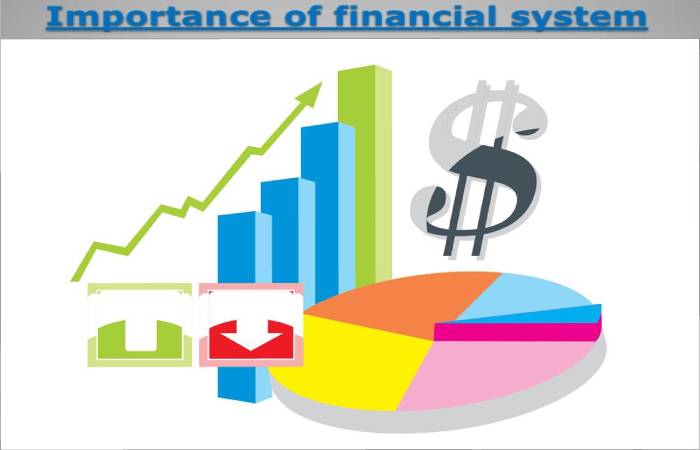Table of Contents
Financial System Definition
The financial system is the set of institutions (monetary and government entities) and media (financial assets). And markets that make it possible for some economic agents’ savings (idle money) to go to credit applicants’ hands.
I was channelling savings and investments to ensure that they were allocated in the most efficient way possible. And as a consequence, there is economic growth.
Primary Objective of the Financial System
- Therefore, the financial system mediates between those who have excess money and want to lend it and those who need financing. In other words, what the financial system generates is credited.
- A critical actor within the financial system is the banks, which act as intermediaries between those who have excess money and those who need it.
- Also, they facilitate the conditions for both parties. They adjust the money they receive and lend in time and quantity. It depends on the economic agent’s needs with excess cash and the money applicant.
- Direct borrowing by the savings provider and the borrower would be impossible because their money needs would probably differ in quantity and time.
- From the perspective of those with excess money, it would be an investment since this bank deposit would generate a return.
- From the perspective of those who want to finance, it would be a loan for a specific term, for which they will have to pay interest and return the principal.
Importance of the Financial System

- Therefore, the financial system is critical within the economy. It generates more income for those who lend and encourages companies’ creation, something essential for the economy.
- There are different instruments to carry out this relationship: bank products such as accounts, deposits, etc .; investment products such as stocks, mutual funds, bonds, etc; pension plans—and insurance products such as life insurance.
- There are people more interested in finance and turn to the markets to solve their financial needs. However, many others see banks as an economical solution to their needs.
- Banks take an intermediary position to do advisory work.
- On the other hand, to ensure that intermediaries function correctly, each country has a regulation regulating these funds exchanges.
- In Spain’s case, a supervisory body would be the Bank of Spain, which controls the entities. It can raise funds, the National Securities Market Commission (CNMV).
- And the General Directorate of Insurance and Pension Funds of the Ministry of Economy and Treasury.
What is Understood by the Financial System?
- The financial system can be defined as the set of institutions, media, and markets whose primary purpose.
- It is to channel the savings generated by economic agents with financing capacity to those who need financing at a given time.
- In short, the financial system is the set of mechanisms through which savers and investors get in contact.
- That makes it possible to reconcile the preferences and needs of terms of amount, term, profitability, and risk.
The Function of the Financial System

The financial system fulfills the fundamental mission in a market economy of capturing the surplus from savers (spending units with excess) and channeling it to public or private borrowers (spending units with the deficit).
This mission is fundamental for two reasons:
- The first is the lack of general coincidence between savers and investors. That is, the units with a deficit are different from those with a surplus.
- The second is that savers’ wishes do not coincide, in general, with those of investors concerning the degree of liquidity, security, and profitability of the assets issued by the latter.
- Hence, intermediaries have to transform assets to make them more suitable to savers’ wishes.
- Capture savings and channel them towards investment.
- Encourage savings.
- Offer those products that adapt to savers’ and investors’ needs so that both obtain the most excellent satisfaction at the lowest cost.
- Achieve monetary stability.
Conclusion
The financial system ensures that the resources that allow the development of actual economic activity -produce and consume. It comes from those who have excess money at a given time to those who need it and facilitate risk sharing.
Those who have money and do not need it in the short term to buy something. Or pay their debts to contribute to the financial system in exchange for a prize. That premium is the interest rate.
Those who need more money in the short term have to either invest in a productive project (create additional wealth) or cover a payment obligation.
In a certain period and through a previously agreed payment plan. It is willing to pay an additional cost to get the money immediately. That cost is the interest rate.
Also Read: What are NFTs? – How to Buy, Sells, Make, and More


